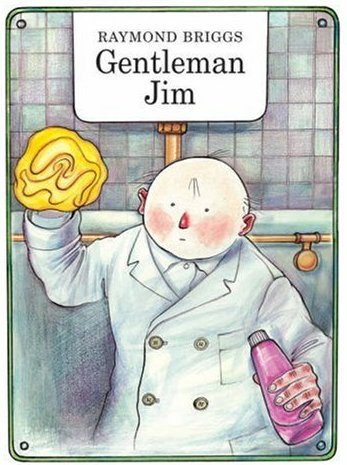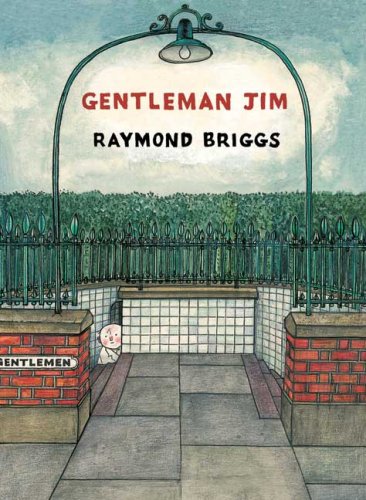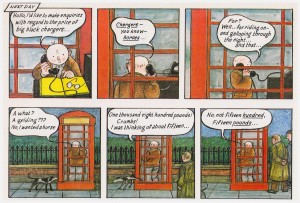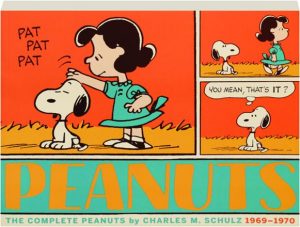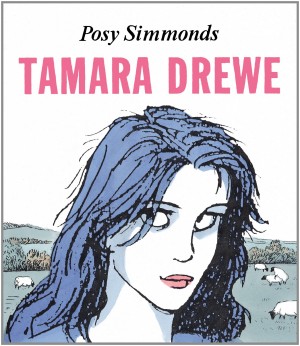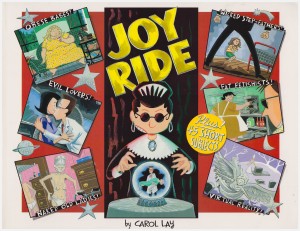Review by Frank Plowright
At the point Raymond Briggs produced Gentleman Jim he was combining careers as an illustrator of children’s books, occasionally his own, with lecturing at Brighton School of Art. He’d already produced The Snowman, but it would be several years before the animated version accorded him national treasure status.
Jim is a middle-aged lavatory cleaner of limited intelligence, dissatisfied with his position, but feeling trapped due to his lack of education. Given to fantasising about outrageous alternative careers, Jim eventually tries his hand at being a highwayman. Reading it, you can almost hear the Peter Sallis voiceover. Never forgetting he’s producing a children’s story, Briggs takes his first tentative steps at also appealing to adults as the bigger picture addresses the failures of British social systems, and the manner in which everyone is assigned a place and not expected to rise above it, still common in the late 1970s.
Despite depicting an obvious comedic figure, Briggs is never patronising about Jim or his wife Hilda, characters he later revealed to be broadly based on the parents whose relationship he detailed so lovingly in Ethel and Ernest. Jim’s eccentricities are presented in poignant fashion, and the depictions of a balding round-faced man accentuate an innocence in the face of more knowing caricatures. The authority figures are faceless, patronising and uniform (with the exception of a splendidly splenetic judge) as Briggs plays with artistic techniques throughout. The fantasies permit fine art indulgence, while the judge is surely a stab at Ronald Searle. There’s a very knowing echo of another wide-eyed innocent trying to set the world right as Jim acquires a donkey.
Briggs’ social critiques would become more strident in later works, particularly the savage anger over the Falklands war displayed in the illustrated book The Tin Pot Foreign General and the Iron Woman. Jim and Hilda return for When The Wind Blows in which their stoic naivety proves fatal.
The 2009 Jonathan Cape edition is a reissue. The original publisher was Hamish Hamilton.
